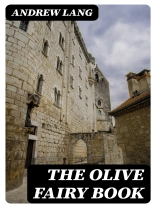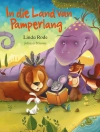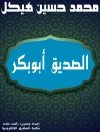In ‘The Olive Fairy Book, ‘ Andrew Lang compiles a mesmerizing array of folktales that resonate with the cultural richness of global traditions. As the fifth installment in Lang’s renowned series of fairy books, this collection showcases his deft literary style, characterized by elegant prose and a masterful blend of narrative and myth. Each tale is carefully curated, drawing from diverse sources such as Persian, Arabian, and various European traditions, highlighting Lang’s commitment to preserving folklore while integrating moral lessons and whimsical storytelling. The text reflects the early 20th-century fascination with fairy tales, serving both as entertainment and a means to explore the complexities of human experience. Andrew Lang, a Scottish poet, novelist, and anthropologist, was a pivotal figure in the popularization of folk narratives. His extensive travels and scholarly pursuits led him to gather tales from various cultures, ultimately fueling his passion for fairy tales. Lang’s deep appreciation for storytelling and his anthropological background provided him with a unique perspective, enabling him to present these stories with authenticity and respect for their origins. I highly recommend ‘The Olive Fairy Book’ to readers yearning for enchantment and adventure. Lang’s timeless collection not only delights with its imaginative narratives but also invites contemplation on universal themes of love, bravery, and morality. It is a treasure for anyone seeking to immerse themselves in the rich tapestry of global folklore.
เกี่ยวกับผู้แต่ง
Andrew Lang (1844–1912) was a Scottish poet, novelist, literary critic, and contributor to the field of anthropology. He is best known for his work as a collector of folk and fairy tales. A prolific writer, Lang published over 100 volumes during his lifetime, including twelve fairy tale collections, of which ‘The Olive Fairy Book’ (1907) is a part. This book, like the others in Lang’s colorful Fairy Books series, is a compilation of stories drawn from various cultures, enchanting readers with tales of magic and adventure. Lang’s literary style often intertwined mythological themes with historical storytelling, which was indicative of his broader academic interests in mythology and anthropology. An important figure in the field of children’s literature, Lang’s work resonated with the Victorian and Edwardian era audiences, as he brought to them stories that transcended geographical boundaries and cultural barriers. Renowned for his diverse literary talents, he also engaged in the writings of Homeric scholarship and criticism; his work ‘Homer and the Epic’ is a notable reference in the classics field. Lang’s legacy as a seminal figure in the collection and popularization of fairy tales has solidified his position as a significant contributor to the literary canon, shaping the ways in which folk and fairy narratives are appreciated in literary scholarship.












